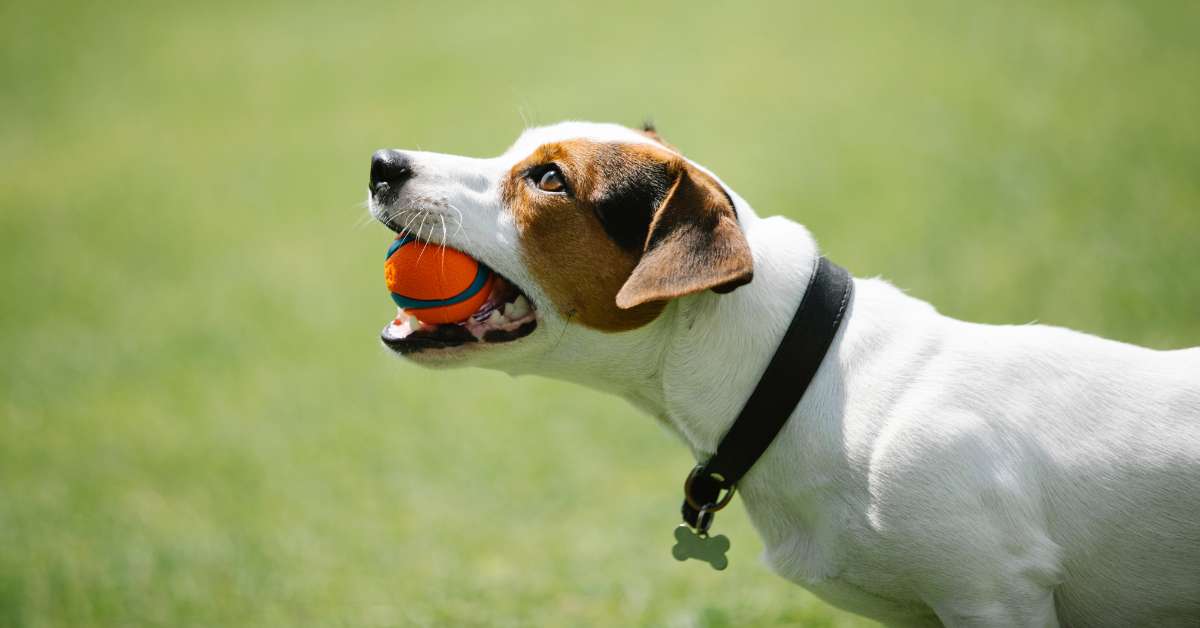Kidney Diet For Dogs: Nutrition Guideline For Your Furry Friend

Ever wondered what’s on the menu for your furry friend with kidney issues?
Dogs, just like humans, can face kidney diet for dogs, and their diet plays a crucial role in managing these conditions.
According to PetMD, as devoted pet parents, it’s only natural to want the best for our four-legged companions.
In this blog post, we’ll explore kidney diets for dogs, exploring the essential ingredients, dietary adjustments, and expert tips to ensure your canine companion maintains a healthy and happy life despite kidney concerns.
Key Takeaways:
- Opt for a kidney-friendly diet low in protein and phosphorus while ensuring essential nutrients.
- Ensure adequate water intake; consider wet food for added moisture.
- Incorporate omega-3 fatty acids to manage inflammation and support kidney health.
- Regular veterinary consultations are crucial for tailored dietary recommendations and monitoring.

What To Look In Nutrition and Diet for Dogs with Kidney Disease
Nutrition and diet are vital components in managing kidney disease in dogs.
When a dog is diagnosed with kidney disease, working closely with your veterinarian to develop a customized diet plan tailored to your pet’s specific needs is essential.
Here’s a comprehensive look at nutrition and diet considerations for dogs with kidney disease:
1. Protein Restriction:
One of the primary dietary adjustments for dogs with kidney disease is protein restriction.
When kidneys are compromised, they struggle to filter waste products efficiently, leading to a buildup of toxins in the body.
Reducing the protein content in your dog’s diet can alleviate the kidneys’ workload and minimize the accumulation of waste products.
However, it’s crucial to strike a balance because dogs still require adequate protein for muscle maintenance and overall health.
High-quality, easily digestible protein sources such as eggs, lean meats (e.g., chicken, turkey), and fish can be incorporated into the diet in controlled amounts.
2. Phosphorus Control:
Elevated phosphorus levels are commonly associated with kidney disease and can further damage the kidneys.
Therefore, managing phosphorus intake is crucial. Many commercial dog foods contain high levels of phosphorus, so selecting low-phosphorus or phosphorus-restricted diets is often recommended.
Additionally, phosphorus binders may be prescribed by your veterinarian to help reduce phosphorus absorption from the gastrointestinal tract.
3. Sodium Management:
Sodium (salt) intake should be moderated in dogs with kidney disease, as excessive sodium can lead to fluid retention and exacerbate hypertension (high blood pressure), which is a common complication of kidney disease.
Avoid feeding your dog salty treats or table scraps and opt for commercial dog foods formulated specifically for kidney health, which typically have reduced sodium levels.
4. Hydration:
Adequate hydration is essential for dogs with kidney disease to support kidney function and help flush out toxins. Encourage your dog to drink plenty of water by providing fresh, clean water at all times.
Wet or canned dog food has a higher water content than dry kibble, making it an excellent choice for promoting hydration in dogs with kidney disease.
5. Omega-3 Fatty Acids:
Omega-3 fatty acids, found in fish oil supplements or certain types of fish like salmon, have anti-inflammatory properties and may benefit dogs with kidney disease by reducing inflammation in the kidneys.
Consult your veterinarian about incorporating omega-3 supplements into your dog’s diet and determining the appropriate dosage.
6. Monitoring and Adjustments:
Regular monitoring of your dog’s kidney function through blood tests and urine analysis is essential for evaluating the effectiveness of the diet plan and making any necessary adjustments.
Work closely with your veterinarian to fine-tune your dog’s diet based on their individual needs and any changes in their condition over time.

What are Appropriate Food Options for Kidney Disease in Dogs?
When it comes to selecting appropriate food options for dogs with kidney disease, it’s essential to focus on ingredients that support kidney function while providing essential nutrients for overall health.
Here are some recommended food options:
- Low-Protein Dog Foods
- Low-Phosphorus Dog Foods
- Reduced-Sodium Dog Foods
- Wet or Canned Dog Foods
- Prescription Diets
- Omega-3 Fatty Acids
- Digestible Carbohydrates
- Home-Cooked or Raw Diets (Under Veterinary Supervision)
Always consult with your veterinarian before making any significant changes to your dog’s diet, especially if they have kidney disease.
Your vet can provide personalized recommendations based on your dog’s specific health needs and stage of kidney disease.
What foods can cause kidney failure in dogs?
Certainly! Here’s a concise list of foods that can cause kidney failure in dogs:
- Grapes and raisins
- Onions and garlic
- Chocolate
- Xylitol (found in sugar-free gum and some candies)
- Macadamia nuts
- Alcohol
- Caffeine
- High-fat foods
- Raw meat and bones
- High-salt foods
Avoiding these foods is crucial to safeguard your dog’s kidney health and overall well-being. If accidental ingestion occurs, seek veterinary assistance immediately.
What Are The Best Dog Food For Kidney Disease?
Finding the best dog food for kidney disease is crucial for managing your furry friend’s condition and ensuring they receive the right nutrition to support their kidney health.
Here’s a rundown of some top options to consider:
Hill’s Prescription Diet k/d Kidney Care Dog Food:
- Specifically formulated to support kidney function and manage kidney disease in dogs.
- Low in phosphorus and sodium to reduce strain on the kidneys.
- Contains high-quality protein sources and omega-3 fatty acids to support overall health.
Royal Canin Veterinary Diet Renal Support A Dog Food:
- Designed to support kidney function and slow the progression of kidney disease.
- Low phosphorus content to minimize stress on the kidneys.
- Contains antioxidants and essential nutrients to support overall health and well-being.
Purina Pro Plan Veterinary Diets NF Kidney Function Dog Food:
- Formulated to support kidney function and minimize the risk of complications associated with kidney disease.
- Low phosphorus and moderate protein content to support kidney health.
- Enhanced with omega-3 fatty acids and antioxidants for added support.
Blue Buffalo Natural Veterinary Diet KS Kidney Support Dog Food:
- Crafted with controlled levels of protein and phosphorus to support kidney function.
- Contains high-quality ingredients and essential nutrients for overall health.
- Features added omega-3 fatty acids and antioxidants to support kidney health and reduce inflammation.
Rayne Clinical Nutrition Adult Health-RSS Dog Food:
- Formulated by veterinary nutritionists to support dogs with kidney disease.
- Low phosphorus content and controlled protein levels to ease kidney strain.
- Contains high-quality ingredients and essential nutrients for balanced nutrition.
Usually What To Feed a Dog With Kidney Failure?
- Protein Priority: Opt for quality proteins like eggs, lean meats, and fish in controlled amounts to ease kidney strain.
- Phosphorus Patrol: Choose low-phosphorus foods to prevent buildup, reducing stress on the kidneys.
- Sodium Smart: Cut back on salt to avoid fluid retention and hypertension, favoring low-sodium options.
- Hydration Helper: Ensure fresh water is always available, and consider wet food for extra hydration.
- Omega-3 Boost: Incorporate omega-3 fatty acids from fish or supplements to manage inflammation.
- Carb Choices: Select easily digestible carbs like rice and sweet potatoes for energy without taxing kidneys.
- Monitor and Adjust: Stay vigilant with vet check-ups and adjust the diet as needed for your dog’s well-being.
- Prescription Plans: Discuss prescription diets with your vet for tailored nutrition to support kidney health.
What vegetables are good for dogs with kidney disease?
It’s essential to choose options that are low in phosphorus and sodium while still providing valuable nutrients.
Here are some vegetables that are generally considered safe and beneficial for dogs with kidney disease:
- Green Beans
- Green beans are low in phosp
- Cauliflower
- Broccoli (in moderation)
- Zucchini
- Cabbage
- Pumpkin (cooked and plain)
- Peas
- Potatoes (in moderation and cooked)
When feeding vegetables to dogs with kidney disease, it’s essential to cook them thoroughly and avoid adding any seasonings or sauces that may be high in sodium or phosphorus.
Additionally, always consult with your veterinarian before making any significant changes to your dog’s diet, including the addition of vegetables.

Canine Kidney Health: Vet-Approved Homemade Dog Food Recipes
Creating homemade dog food for canine kidney health is a thoughtful approach to nourishing your pet while managing kidney issues.
These vet-approved recipes prioritize ingredients that support kidney function.
Here are two recipes to consider:
Recipe 1: Turkey and Sweet Potato Delight
Ingredients:
- 1 cup cooked and shredded turkey (lean)
- 1 cup sweet potatoes, mashed
- 1/2 cup carrots, finely chopped
- 1/2 cup green beans, steamed and chopped
- 1 tablespoon olive oil (for omega-3)
- 1/4 teaspoon calcium carbonate (consult your vet for appropriate dosage)
- Water for consistency
Instructions:
- In a large bowl, combine the shredded turkey, mashed sweet potatoes, chopped carrots, and steamed green beans.
- Add the olive oil for healthy fats and mix well.
- Gradually incorporate calcium carbonate, ensuring proper blending.
- Add water as needed for the desired consistency.
- Serve in appropriate portions according to your dog’s weight and dietary requirements.
Recipe 2: Salmon and Quinoa Medley
Ingredients:
- 1 cup cooked salmon, flaked
- 1 cup quinoa, cooked
- 1/2 cup peas, cooked
- 1/2 cup carrots, grated
- 1 tablespoon flaxseed oil (for omega-3)
- 1/4 teaspoon potassium chloride (consult your vet for appropriate dosage)
- Water for consistency
Instructions:
- Combine the cooked and flaked salmon, cooked quinoa, peas, and grated carrots in a mixing bowl.
- Drizzle flaxseed oil over the mixture for omega-3 benefits.
- Gradually add potassium chloride, ensuring even distribution.
- Adjust consistency with water as needed.
- Serve in appropriate portions based on your dog’s weight and dietary needs.
Important Notes:
Always consult your veterinarian before introducing homemade diets, ensuring they align with your dog’s specific health requirements.
Monitor your dog’s response to the new diet, and make adjustments as recommended by your vet.
Ensure that calcium and other essential nutrients are balanced to meet your dog’s dietary needs.
Why Avoid Prescription Kidney Diets?
Avoiding prescription kidney diets may not always be necessary, but considerations include:
- Cost
- Palatability
- Limited variety
- Quality concerns
However, consulting with a veterinarian is essential to determine the best diet for your dog’s specific needs and stage of kidney disease.
Tips for Managing Kidney Disease and Improving Quality of Life
Managing kidney disease in dogs requires a combination of medical care, dietary adjustments, and lifestyle modifications to improve their quality of life.
Here are some essential tips for effectively managing kidney disease and enhancing your dog’s well-being:
1. Regular Veterinary Check-ups:
Schedule regular check-ups with your veterinarian to monitor your dog’s kidney function and overall health.
Routine blood tests and urine analysis are essential for assessing kidney function and detecting any changes early on.
2. Follow Veterinary Recommendations:
Follow your veterinarian’s recommendations regarding medication, diet, and lifestyle modifications for your dog with kidney disease.
They can provide personalized guidance based on your dog’s specific needs and stage of kidney disease.
3. Kidney-Friendly Diet:
Feed your dog a kidney-friendly diet recommended by your veterinarian. This typically involves foods low in protein, phosphorus, and sodium but high in quality nutrients.
Consider prescription diets formulated for dogs with kidney disease to meet their nutritional requirements while supporting kidney function.
4. Hydration Management:
Ensure your dog has access to fresh, clean water at all times to maintain hydration. Consider offering wet or canned food, which has a higher moisture content, to help increase fluid intake.
5. Medication Compliance:
Administer any prescribed medications as directed by your veterinarian.
Medications may include those to manage blood pressure, control phosphorus levels, alleviate nausea, or treat underlying conditions contributing to kidney disease.
6. Monitoring Symptoms:
Keep an eye out for symptoms of kidney disease, such as increased thirst and urination, decreased appetite, weight loss, lethargy, vomiting, and changes in urinary habits. Promptly report any changes or concerns to your veterinarian.
7. Environmental Comfort:
Create a comfortable environment for your dog, providing soft bedding, a warm and quiet resting area, and easy access to food, water, and bathroom facilities.
8. Regular Exercise:
Encourage light to moderate exercise tailored to your dog’s abilities and energy levels. Regular, gentle exercise can help maintain muscle tone, joint mobility, and overall well-being.
9. Minimize Stress:
Minimize stressors in your dog’s environment, as stress can exacerbate symptoms and impact overall health. Provide a calm and predictable routine, and avoid sudden changes or stressful situations whenever possible.
10. Quality Time and Affection:
Spend quality time with your dog, offering plenty of love, attention, and affection.
Engage in activities your dog enjoys, such as walks, playtime, and cuddling, to promote mental and emotional well-being.
FAQs
Is cat food bad for dogs’ kidneys?
According to PetMD, Yes, cat food is not suitable for dogs as it lacks essential nutrients and can lead to imbalances, including potential kidney issues.
Why reduce phosphorus for dogs with kidney disease?
According to the WebMD, high phosphorus levels can worsen kidney function and contribute to kidney damage in dogs with kidney disease.
Why reduce protein for dogs with kidney disease?
According to the VCA Animal Hospital, excessive protein intake can strain the kidneys, making it harder for them to function properly in dogs with kidney disease.
How To Support Your Dog With Kidney Disease?
According to Akc.org, provide a kidney-friendly diet, ensure hydration, administer medications as directed, and maintain regular veterinary check-ups.
Why increase omega-3 fatty acids in my dog’s diet?
Omega-3 fatty acids have anti-inflammatory properties that can help manage inflammation associated with kidney disease and support overall health.
Can my dog eat renal dog food for kidney disease and problems?
Yes, renal dog food is specifically formulated to support kidney function and manage kidney disease in dogs.
What are treatments for Chronic Kidney Disease?
Treatment may include medication, dietary changes, hydration therapy, and management of complications like high blood pressure and anemia. Regular veterinary monitoring is essential.
Conclusion:
In conclusion, a kidney diet for dogs is a crucial component in managing kidney disease and improving their quality of life.
By focusing on low-protein, low-phosphorus foods, along with appropriate hydration and omega-3 supplementation, pet owners can effectively support their dog’s kidney health.
Remember to consult with a veterinarian for personalized dietary recommendations tailored to your dog’s specific needs and stage of kidney disease.
With proper care and attention to their diet, dogs with kidney disease can lead happy and fulfilling lives.
